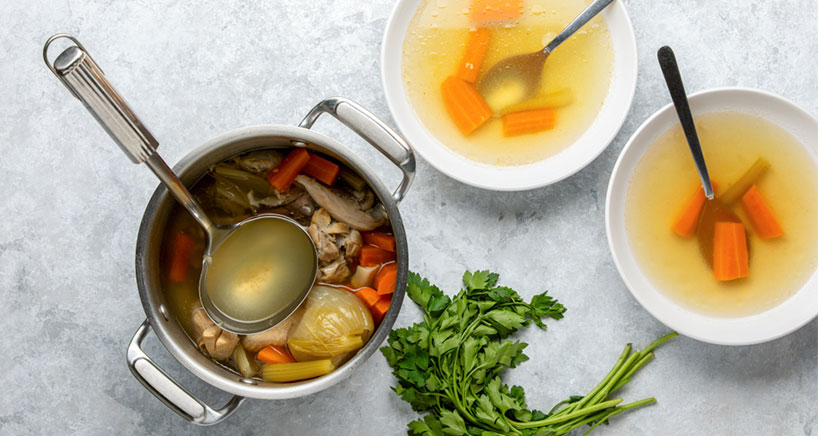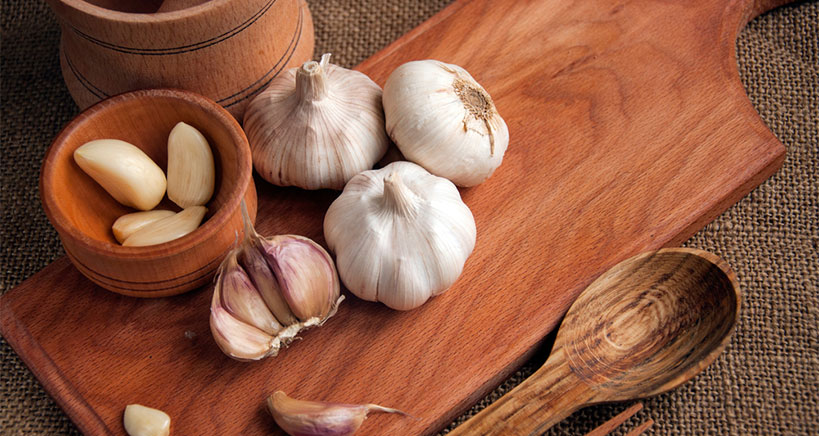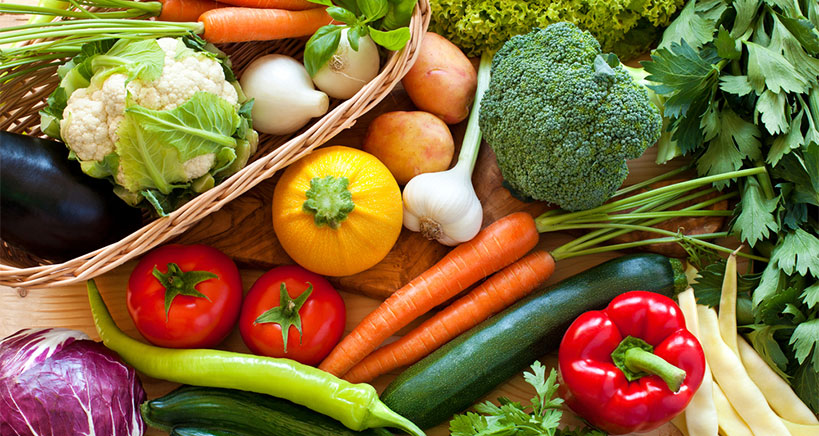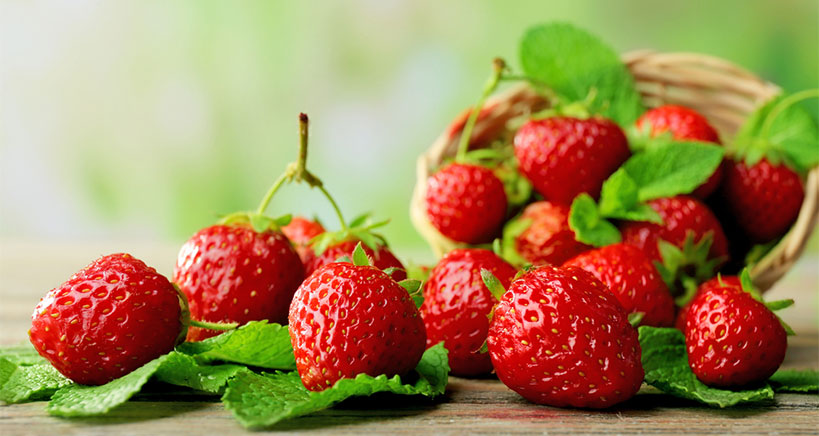
Trending: Collagen Infused Foods and Beverages
Edible beauty is on the rise, and it is making its food industry appearance in the form of collagen. Already being hailed by Trendspotter as a bona fide 2019 trend, what is the collagen craze all about? If you are like most people, in or out of the foodservice business, you are likely hungry for answers to questions such as: What is collagen anyway? Can you actually eat and drink it? What’s the difference between collagen supplements and collagen-containing foods? And, given that collagen, aka ‘edible beauty,’ is supposed to enhance appearance and promote healthy-looking skin, does ingesting collagen actually work?
The Scoop on Ingestible Collagen
If your chef’s tray is loaded with unanswered questions about collagen-infused foods and beverages, get ready for a diverse menu of answers that may or may not quench your thirst or satisfy your palate. As with many new trends in the foodservice industry, the jury is still out on the pros and cons of collagen edibles. The good news is that there are a growing number of products to consider, and an equally large number of expert opinions to chew on. So, let’s take a closer look at trending collagen so that you can make an informed decision about adding them to your recipes, dishes and restaurant menus.
The Big Picture
Over the past several years, we have seen a proliferation of health-and-wellness foods flooding the market, from no-fat, no-sugar, no-gluten, no-wheat, no-nuts, and no-preservatives to plant-based foods and drinks, protein alternatives to meat and dairy, probiotics, and more. Among the latest additions is collagen – the most abundant protein in the human body, located in our skin, muscles, tendons, and bones. It is also a protein found in animal connective tissue and hence in animal meat; so, in fact, eating collagen is not entirely new.
The Role (and Diminishing Role) of Collagen in the Body
If your thinking caps are on, your appetite for a healthy dose of accurate information is probably asking: But why the need to add collagen at all if it occurs naturally in the body to begin with?

The problem with collagen is that with age, the body produces less and less of it. In other words, collagen loss is entirely normal and moreover inevitable. However, as it diminishes, so does the starring role it played beforehand.
So, what do we know about the function of collagen in the body? Also called endogenous collagen (synthesized by the body), here are some of its most important characteristics:
- It is found throughout the body, but especially in the skin, bones, and connective tissues
- It is said to be the substance that holds the body together, providing strength and structure and forming the building blocks of cells and tissues
- It keeps the skin elastic
- It supports joint health
- It slows the aging process
- It plays a role in replacing/restoring dead skin cells
- It acts as a protective covering for organs such as the kidneys
For these reasons, the natural breakdown or depletion of collagen is linked to several health and beauty issues, including:
- Weak cartilage
- Brittle bones
- Stiff joints
- Decline in the structural integrity of the skin
- Wrinkles
- Women post-menopause also experience a dramatic reduction in collagen synthesis
The following extraneous factors are also known to cause collagen depletion:
- High sugar consumption
- Smoking
- Ultraviolet (UV) sunlight rays
By avoiding tobacco and excess sun exposure and by following a healthy diet and exercise regime, you can help protect your collagen level and keep your skin and musculoskeletal framework healthier for longer.
Topically Applied Collagen
Given its anti-aging and healthy skin-promoting properties, topically applied collagen remedies, aka exogenous collagen, have been around for ages. This accounts for the wealth of over-the-counter collagen-containing cosmetic products that have long been available in the form of creams, ointments, and lotions that claim to reduce wrinkles, rejuvenate the skin, and repair joints. There are also shampoos, hair masks, and a hodgepodge of other collagen-based products.
However, promises of delivering the next beauty elixir have failed to deliver. This is because collagen molecules are actually too large to be absorbed through the skin. Which leads us to… today’s hot market for ingestible collagen in the form of supplements, foods, and beverages.

Ingestible Collagen: Facts vs. Fiction
In recent years, companies have created a growing variety of ways for people to consume collagen supplements. They come as powders, liquids, easy-to-swallow capsules, and peptides – and in a variety of fruit flavors to boot! Supporting this market are nutrition experts touting collagen supplements as the next fountain of youth and even as a way to improve digestion.
But is there any truth to these claims? As professional chefs and bakers, you will want to know how to separate the wheat from the chaff and separate the facts from the fiction regarding collagen supplements.
Collagen Supplement Research
A strong argument against the collagen-supplement-tide was that scientifically, collagen is broken down too quickly during digestion for it to be absorbed. However, researchers created a solution called hydrolyzed collagen wherein the molecular bonds between collagen strands are broken into 19 amino acids which are up to 85% absorbable by the bloodstream.
There is also a body of scientific evidence suggesting that collagen supplements work. For example, you can check out studies here, here, and here, where people taking collagen supplements benefited from improved skin elasticity, reduced eye wrinkle volume, decreased symptoms of osteoarthritis, less joint pain, and more.
However – and this is especially important news if you work in the foodservice business – despite claims on the label and despite the promising evidence, the research is still in its infancy and thus the Food & Drug Administration (FDA) does not regulate collagen supplements. However, according to dieticians, as long as one doesn’t ingest more than 20 grams per day, collagen supplements are not likely to cause harm.
Collagen Rich Foods
Where does all this take us? Back to the table and to the main course of the day: Foods and beverages that naturally boost collagen levels – and there is no shortage of products and ingredients to choose from! Examples include: proline-containing egg whites, cabbage, cheese, soy, and meat; the gamut of berries (strawberries, blueberries, raspberries, blackberries); fish; almond and argan oil (once applied topically but naturally rich in omega fatty acids and vitamin E that can help reduce wrinkles, hydrate the skin, and restore elasticity); dark leafy greens, and more. They all contain nutrients that help boost collagen production or antioxidants that prevent free radicals from breaking down the protein.
Summed up tastefully by dermatologist Dr. Stephanie Savory in her recent interview with NBC 5 News: “It would be really great if we could get rejuvenated skin and the fountain of youth in a pill that we take a couple of times a day, or in a powder supplement that we add to our drink. But it would be cheaper and easier to eat a well-balanced healthy diet, get your protein from other sources.”
So, before you pick up your next collagen-infused cup of java, chocolate bar, muffin, or post-workout shake, consider revving up your body’s collagen level – and perhaps taking a few years off your appearance – with foods that naturally boost the protein. Fortunately, some of the most basic foods fit the bill.

Dietary Sources of Collagen
Some of the trending selections include:
Gelatin: Collagen, when boiled, becomes gelatin. In addition to being a good source of amino acids, some studies indicate it may promote tissue repair and boost collagen synthesis, however not all research supports these claims.
Bone Broth: Bone Broth is trending and is being touted not only as one of the best natural sources of collagen but as the next superfood. However, the scientific evidence is not convincing, as it suggests that bone broth is poorly absorbed in the body and/or unlikely to provide sufficient amino acids.
Vegetables: On the other hand, the antioxidants present in dark leafy green vegetables such as kale and spinach do defend against free radicals that break down collagen. Likewise, red and orange vegetables such as beets, tomatoes, red peppers, sweet potatoes, and carrots contain vitamin A and lycopene, which boost and restore collagen and protect against sun damage.
Fish and Grass-Fed Meat: Rich in omega-3 and a great dietary way to promote elastic, youthful-looking skin, increase your intake of salmon, tuna, mackerel, and grass-fed meat.
Garlic:
Garlic contains taurine, lipoic acid, and sulfur, which can play a part in collagen production and in rebuilding damaged collagen.
Collagen-Boosting Nutrients
Here are some more nutrients and foods that can help stimulate collagen synthesis and promote skin health:
- Vitamin C (found in the gamut of citrus fruits, strawberries, broccoli, and peppers)
- Vitamin A (found in plant-based and animal-derived foods)
- Copper (found in nuts, shellfish, some bottled waters, and red meat)
Collagen: The Real Deal or A Passing Fad?
Summing up: As a protein, collagen provides the framework for our musculoskeletal system and is a rich source of essential amino acids required for multiple biological functions. Hungry for health and beauty, consumers in the United States are spending and expected to spend over $120 million on collagen products. However, like all foods and trends, the ingestible collagen craze should be taken with a grain of salt…
Adisa stick to pure original and local variety of seeds for our agriculture produce.
Using only pure variety of seeds coupled with non-usage of artificial chemicals or fertilizers at ADISA farms we accept
the production we get(even though it is less) with a whole heart and health; rather than producing huge quantities which destroy both the producer and the consumer.